




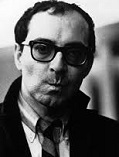
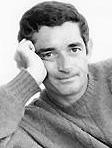

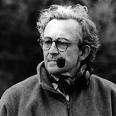









TLW's French Cinemascope™ (French Cinema Historyscope) |
By T.L. Winslow (TLW), the Historyscoper™ |
© Copyright by T.L. Winslow. All Rights Reserved. |
Original Pub. Date: Nov. 19, 2016. Last Update: July 20, 2025. |




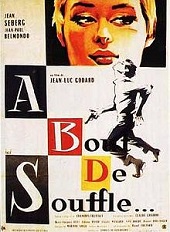
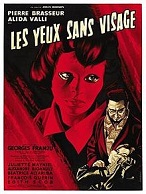
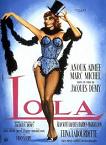
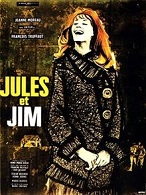
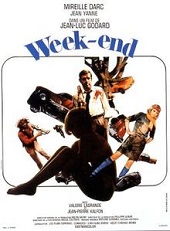
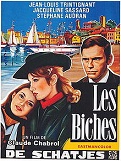


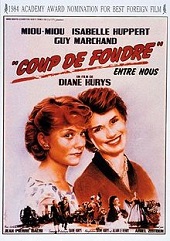
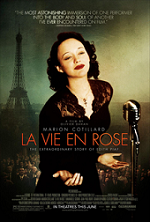
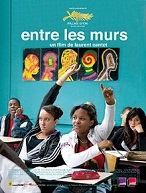
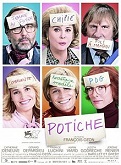

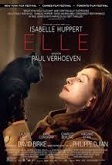
Westerners are not only known as history ignoramuses, but double dumbass history ignoramuses when it comes to French cinema history. Since I'm the one-and-only Historyscoper (tm), let me quickly bring you up to speed before you dive into my Master Historyscope.


On Feb. 13, 1895 brothers Auguste Lumiere (Lumière) (1862-1954) and Louis Lumiere (Lumière) (1864-1948) of Lyon, France, who with their Haute-Saone, Ormoy-born photographer father Charles-Antoine Lumiere (Lumière) (1840-1911) (Fr. "lumiere" = light) set up a photographic equipment factory in Lyons, France in the 1880s patent the Cinematograph camera-projector combo, one of the first motion picture cameras, using a perforated film, and the first showing movies to an audience instead of an individual viewer like Edison's "peepshow" kinetoscope; their first film Leaving the Lumiere Factory in Lyon (Sortie de l'usine Lumiere de Lyon), the almost first true motion picture debuts at L'Eden Cinema in La Ciotat on Sept. 28, 1895, followed by Paris on Dec. 28, 1895; view it.
On Sept. 28, 1896 Pathe Freres (Pathé Frères) film studio is founded in France by the Pathe Brothers Charles, Emile, Theophile, and Jacques, becoming the world's largest film equipment and production co. by the early 1900s; in 1908 they invent the newsreel.


In 1896 Alice Guy (Guy-Blache) (Guy-Blaché) (1873-1968) becomes the first film dir., working for the French production co. of Leon Gaumont (1864-1946) to film The Cabbage Fairy (La Fee aux Choux).
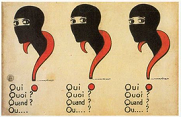
On Nov. 13, 1915-June 30, 1916 Louis Feuillade's Les Vampires debuts, a 7-hour serial film set in Paris about a bizarre underground Apache gang, pioneering thriller techniques later adopted by Fritz Lang and Alfred Hitchcock along with avant-garde techniques later adopted by Luis Bunuel; Fuillade's masterpiece.
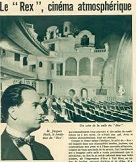
On Sept. 6, 1918 after introducing Charlie Chaplin to France, Tunis-born French Jewish film producer Jacques Haik (1893-1950) releases his first film Andres Cornelis (André Cornélis), based on the 1886 novel by Paul Bourget; on Nov. 25, 1927 he follows with a remake. On Dec. 8, 1931 his Grand Rex movie theater in Paris (cap. 2,800) opens, becoming the largest cinema house in Europe. Too bad, in 1940 he releases My Crimes After Mein Kampf, getting him expelled from France by the Nazis.
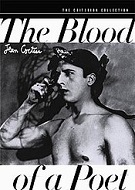

On Jan. 20, 1932 Jean Cocteau's B&W The Blood of a Poet (Le sang d'un poete) (Cocteau's feature debut) debuts, starring Enrique Riveros as the Poet, who appears in four separate films, incl. one starring Man Ray's model Lee Miller (covered in butter) as a plaster statue, and another featuring aerialist Barbette; first in the Orphic Trilogy, incl. "Orphee" (1950) and "Testament of Orpheus" (1960); originally filmed in 1930, rumors that it contains an anti-Catholic message causes Cocteau to be threatened with excommunication and delays release for over a year; watch film.
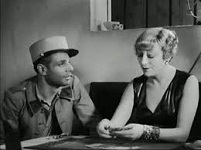
On May 2, 1934 Jacques Feyder's B&W Le Grand Jeu (Pathe-Natan) debuts, starring Marie Bell as honky-tonk temptress Irma, who reminds hero Pierre Martel (Pierre Richard-Willm) of the Parisian babe Florence (Marie Bell) he ran away to the French Foreign Legion for; "Alors... je te fais le grnd jeu?"

On Jan. 28, 1937 Julien Duvivier's Pepe (Pépé) Le Moko debuts, based on the novel by Henri La Barthe about a gangster from Marseilles who hides in the Casbah of Algiers, making a star of Jean Gabin (1904-76), spawning multiple Casbah movies.

On June 8, 1937 Jean Renoir's La Grande Illusion debuts, co-written by Charles Spaak, an anti-war film about two captured French officers in WWI, Lt. Marechal (Jean Gabin) and Capt. de Boeldieu (Pierre Fresnay), whose optimism is not yet shaken by WWII; a big hit in France and the U.S., with Orson Welles calling it one of the two movies he would take with him "on the Ark".
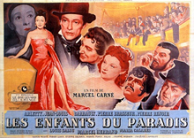
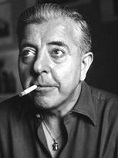
On Mar. 9, 1945 Marcel Carne's Les Enfants du Paradis (The Children of Paradise or the Gods) debuts, written by Neuilly-sur-Seine-born poet-screenwriter Jacques Prevert (Prévert) (1900-77) and filmed under the schnauts of the Nazis by resistance fighters, about a 5-way love pentagon (four men, one femme) in the Paris theater district of the 1800s centered around mime Baptiste (Jean-Louis Barrault) and actress Garance AKA Claire Reine (Arletty) is considered by many the greatest film of all time, being billed as the French answer to the 1939 Hollywood film "Gone With the Wind"; "I would give up all my films to have directed Les Enfants du Paradis." (Francois Truffaut - and it came out in what year?
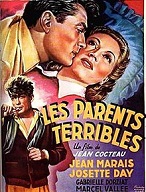
On Dec. 1, 1948 Jean Cocteau's Les Parents Terribles (The Storm Within) (Les Filmes Ariane) debuts, starring Jean Marais as 22-y.-o. Michel, whose mother Yvonne-Sophie (Yvonne de Bray) gets jealous that he is in love with anybody but her, while his father Georges (Marcel Andre) finds out that it's his mistress Madeleine (Josette Day), causing both to go to Aune Leonie (Leo) (Gabrielle Dorziat) for help; sells 2.25M admissions.
In Apr. 1951 Cahiers du Cinema (Cinéma) (Notebooks on Cinema) begins pub. in Paris, France by Andre Bazin (1918-58), Jacques Doniol-Valcroze (1920-89), Joseph-Marie Lo Duca (1905-2004)< et al., going on to reinvent the basic tenets of film theory and criticism, becoming the oldest film mag. to survive to modern times.

In 1954 Paris-born French film critic Francois Roland Truffaut (1932-84), known as "the Gravedigger of French Cinema" for his brutual reviews pub. the essay A Certain Tendency of French Cinema (Une Certaine Tendance du Cinema Francais), introducing his Auteur Theory, claiming that a great dir. (auteur) rises about the inferior metteur en scene (scene-setter) dir., and is the true author of a film, citing his hero Alfred Hitchcock and his unique style; it doesn't catch on until the 1960s; meanwhile Truffaut decides to show everybody by becoming a dir. himself.
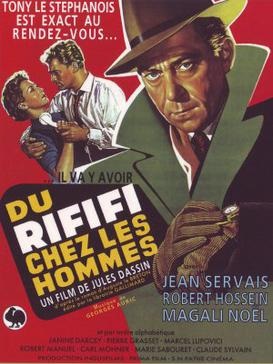
On Apr. 13, 1955 Jules Dassin'sRififi (Du rififi chez les hommes) debuts, a film noir that features the greatest jewelry store burglary ever filmed, a half-hour long, filmed without music or dialog, copycatted by real criminals around the world; stars Jean Servais as Tony "le Stphenaois", Carl Mohner as Jo "le Suedois"; Robert Manuel as Mario Ferrati; Dassin plays safecracker Cesar "le Milanais" under the alias Perlo Vit; filmed in France by Dassin after he was blacklisted in Hollywood for Communist ties; does ? box office on a $200K budget; Dassin becomes the first dir. to break the Hollywood blacklist when it's distributed in the U.S.; spawns sequels "Du rififi chez les femmes" (1959), "Du rififi a Tokyo" (1963), "Du rififi a Paname" (1966);


On Jan. 28, 1958 Louis Malle's Ascenseur pour L'Echafaud (Elevator to the Gallows) debuts, becoming the dir. debut of Louis Malle (1932-95) makes an internat. star of Jeanne Moreau (1928-), "the new Bardot", and features a score by Miles Davis.
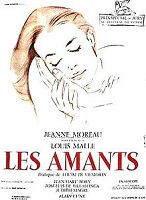
On Sept. 30, 1958 Louis Malle's Les Amants (The Lovers) debuts, an adultery flick based on the novel "Point de Lendemain" by Dominique Vivant, starring Jeanne Moreau as Jeanne Tournier; results in the landmark U.S. Supreme Court obscenity case "Jacobellis v. Ohio".
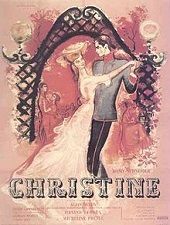
In 1958 Pierre Gaspard-Huit's Christine debuts, based on the novel "Liebelei" by Arthur Schnitzler, starring Romy Schneider and her partner (1958-63) Alain Delon.

On May 4, 1959 Francois Truffaut's The 400 Blows (Les Quatre Cents Coups) debuts (Truffaud's dir. debut), starring Jean-Pierre Leaud (Léaud) (1944-) as 12-y.-o. schoolboy Antoine Daniel, who delves into petty crime and experiences the unjust French juvenile delinquent system, becoming the first of Truffaut's autobio. Antoine Doinel series, introducing the New Wave (Nouvelle Vogue) movement in French cinema, rejecting the classical cinematic form to emphasize relationships and humane stories.
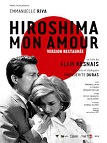
On June 10, 1959 Alain Resnais' B&W Hiroshima Mon Amour debuts, written by Marguerite Duras, starring Emmanuelle Riva as a lonely French actress in Tokyo having an affair with Japanese architect Elji Okada in the shadow of you know what; helps launch the Nouvelle Vague (French New Wave), which uses mini-flashbacks to create a unique nonlinear storyline.

On Mar. 2, 1960 Georges Franju's horror film Eyes Without a Face (Les Yeux sans visage) (Lux Film) (Champs-Elysees Productions) debuts, based on the Jean Redon novel, starring Pierre Brasseur as plastic surgeon Dr. Genessier, who performs a face transplant on his disfigured daughter Christiane (Edith Scot), with the help of his asst. Louise (Alida Valli) while eluding Inspector Parot (Alexandre Rignault); after censorship, it debuts in the U.S. under the title "The Horror Chamber of Dr. Faustus"; inspires the 1983 Billy idol song Eyes Without a Face; view clip.
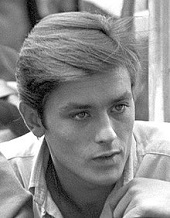
On Mar. 10, 1960 Rene Clement's Purple Noon (Paris Film) debuts, based on the 1955 Patricia Highsmith novel "The Talented Mr. Ripley", starring handsome, clean-cut Alain Fabien Maurice Marcel Delon (1935-) in hia major film debut as Am. freeloader Tom Ripley, who kills rich Frenchman Philippe Greenleaf (Maurice Ronet) and impersonates him and steals his babe Marge Duval (Marie Laforet); a hit in France, it makes Delon a star and sex symbol through the 1970s; does $618K box office.


On Mar. 17, 1960 Jean-Luc Godard's B&W Breathless (A Bout de Souffle) (Out of Breath) debuts, becoming the first feature film of Paris-born dir. Jean-Luc Godard (1930-), catapulting him to the vanguard of French filmmakers, and is the acting debut of Jean-Paul Belmondo (1933-) as itinerant criminal Michel Poiccard; also stars Jean Seberg as his bbe Patricia Franchini; "All you need to make a movie is a girl and a gun" (Godard); "There is the cinema before Godard and the cinema after Godard" (Francois Truffaut).
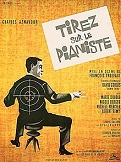
On Nov. 25, 1960 Francois Truffaut's Shoot the Piano Player (Tirez sur le pianiste) (Les Films de la Pleaide) (Les Films du Carrosse) debuts, based on the David Goodis novel "Down There", a comical movie about gangsters based on the David Goodis novel "Down There", starring Charles Aznavour as washed-up classical pianist Charlie Kohler/Edouard Saroyan, whose wife commits suicide, ending up in a dive bar in Paris where waitress Lena (Marie Dubois) falls in love with him; it started out serious until Truffaut decided he hated them too much.
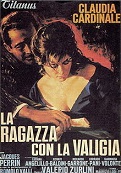
On Feb. 9, 1961 Valerio Zurlini's Girl with a Suitcase (La Razazza con la Valigia) debuts, starring Claudia Cardinale as showgirl Aida Zepponi, who lives on the goodwill of others, and runs to the younger brother of her ex-lover, 16-y.-o. rich kid Lorenzo Fainardi (Jacques Perrin), becoming his lover while the family goes nuts, finally parting with a new lover, after which he tries to make things right by giving her some farewell money.


On Mar. 3, 1961 Jacques Demy's Lola debuts, a "musical without music" starring Anouk Aimee as a cabaret dancer; the dir. debut of Jacques Demy (1931-90); first in a trilogy of romantic films, incl. "The Umbrellas of Cherbourg" (1964), "The Young Girls of Rochefort" (1967).
In 1961 Alain Resnais' Last Year at Marienbad (L'Anee Derniere a Marienbad) debuts, written by Alain Robbe-Grillet, starring Giorgi Albertazzi as a stranger trying to lure married Delphine Seyrig to run away with him at an old-fashioned luxury hotel.

On Jan. 23, 1962 Francois Truffaut's Jules and Jim debuts, based on the 1953 novel by Henri-Pierre Roche, starring Jeanne Moreau, Oskar Werner, and Henri Serre in a WWI love triangle; Stephen Hawking's favorite movie; watch trailer.
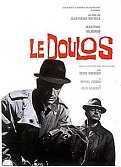
On Jan. 8, 1963 Jean-Pierre Melville's B&W Le Doulos (The Finger Man) (Lux-Films) debuts, based on the novel by Pierre Lesou, starring Serge Reggiani as recently-released con Maurice Faugel, who hooks up with gangsters Jean-Paul Belmondo as Silien, and Rene Lefevre as Gilbert Barnove; the ending features an iconic scene of the protangonist's federa coming to rest on a forest floor, which is copied by the 1990 Hollywood film "Miller's Crossing".
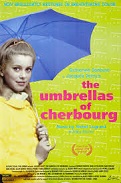
On Feb. 19, 1964 Jacques Demy's The Umbrellas of Cherbourg debuts, a musical starring Catherine Deneuve and Nino Castelnuovo, with music by Michel Legrand; features the song I Will Wait for You.

On Dec. 29, 1967 Jean-Luc Godard's Weekend (Week-end) debuts, a surreal carnage film based on his mother's fatal 1954 auto accident, starring Mireille Darc and Jean Yanne as bourgeois couple Corinne and Roland, who witness highway wrecks while traveling through the French countryside to get her inheritance from her dying father, only to be stiffed and get captured by the hippie Seine and Oise Liberation Front, who kill and eat them; Godard gets in a serious motorcycle accident in 1975.

On Mar. 22, 1968 Claude Chabrol's Les Biches (The Does) debuts, starring Stephane Audran and Jacqueline Sassard as tortured lesbians Frederique and Why, who go to Frederique's villa in Saint Tropez for the winner, inhabited by an odd gay couple.
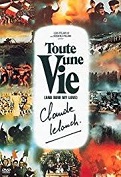
On May 15, 1974 Claude Lelouch's And Now My Love (Toute une Vie) (Embassy Pictures) debuts, starring Marthe Keller (as Sarah and Rachel) and Andre Dussolier (as Simon Duroc) in a love story spanning a cent. and several continents.

On Apr. 3, 1976 the Cesar (César) Award for French film, named after scrap metal sculptor Cesar (César) Baldaccini (1921-98) is first awarded by the Academie des Arts et Techniques du Cinema in the Theatre du Chatelet in Paris, becoming the main nat. award for French film; the trophies are his sculptures; in ? the awards ceremony is moved to Feb.

On Jan. 24, 1979 Jeanne Moreau's L'Adolescente debuts, starring Laetitia Chauveau as 13-y.-o. nymphet Marie, and Simone Signoret as her mother, who watches her sexual awakening with a local doctor.

On Apr. 6, 1983 Diane Kurys' Entre Nous (Between Us) (AKA Coup de Foudre or Love At First Sight) (Gaumont) debuts, starring Isabelle Huppert as Lena, and Guy Marchand as Michel, who helps her escape from a French POW camp by marrying her, despite both being Jewish; they end up running a garage in Lyon, where Lena meets Madeleine (Miou-Miou), wife of black marketeer Costa (Jean-Pierre Bacri), hooking up and going into a Boston marriage with their own dress shop in Paris.
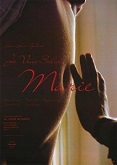
On Jan. 23, 1985 Jean-Luc Godard's Hail Mary (Je vous salue, Marie) (Sara Films) debuts, based on the book "L'Evangile au risque de la psychanalyse" by Francoise Dolto, starring Myriem Roussel as Marie, who gets pregnant without having sex with her beau Joseph (Thierry Rode); also features Juliette Binoche as Juliette; its full frontal nudity scenes shock the Roman Catholics, causing Pope John Paul II to utter the soundbyte that "it deeply wounds the religious sentiments of believers", drawing protesters and getting it banned in Argentina and Brazil, and causing a man to throw a shaving cream pie into Godard's face at the Cannes Film Festival, making it more popular?
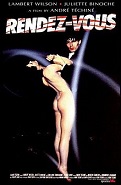

In 1985 Andre Techine's Rendez-vous debuts, making a star of Paris-born Juliette Stalens Binoche (1964-) as provincial girl Nina, who travels to Paris to become an actress, hooking up with Quentin (Lambert Wilson), Scrutzler (Jean-Louis Trintignant), and Paulot (Wadeck Stanczak) and ending up playing Juliet.
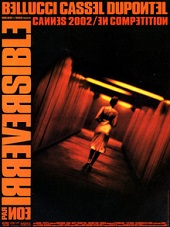
On May 22, 2002 Gaspar Noe's Irreversible (Studio Canal) (Mars Distribution) debuts, a super-gross reverse-chronology French sex thriller flick starring Monica Belucci as Alex, Vincent Cassel as Marcus, Albert Dupontel as Pierre, Jo Predstia as Le Tenia (Fr. "tapeworm"), and Fatima Adoum as Fatima, featuring a 9-min. sodomy rape scene and a gory murder scene accompanied by low frequency sound to give the audience nausea, causing many to walk out of the theater; does 5.8M Euros box office on a 4.6M Euros budget; watch trailer; watch video.
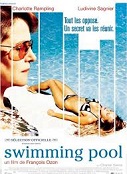
On May 18, 2003 Francois Ozon's Swimming Pool stars Charlotte Rampling as middle-aged English mystery author Sarah Morton, who gets a writer's block and vacations in her publisher's upscale country house near Lacoste, France, where she meets the publisher's daughter Julie (Ludivine Sagnier), who likes to lounge around the pool topless and engage in 1-night stands with male bimbos; does $22.4M box office on a $7.8M budget.

On Feb. 8, 2007 Olivier Dahan's La Vie en Rose (La Mome) debuts, starring first-time actress Marion Cotillard (1975-) as "Little Sparrow" Edith Piaf (1916-63), who dies an early death from alcohol, morphine, and cancer in a typical weepy French talking heads movie; does $86.3M box office on a $25M budget; Piaf becomes the first to win a best actress Oscar for a French-language role.

On May 24, 2008 Laurent Cantet's Entre les Murs (Between the Walls) (The Class) debuts, based on the 2006 novel by Francois Begaudeau, starring himself as a teacher in Paris dealing with racially-mixed students; first French film to win the Palm de'Or since 1987 ("Under the Sun of Satan"); does $28.7M box office on a 2.5M Euro budget.
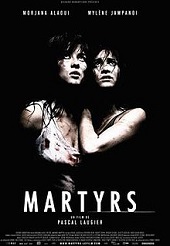
In May 2008 Pascal Laugier's French horror film Martyrs (Wild Bunch) debuts, raising the bar on torture porn, starring Mylene Jampanoi as Lucie Jurin, a young girl tortured in a derelict slaughterhouse before escaping to an orphanage and begins a 15-year search for her torturers, Morjana Alaoui as her friend Anna Assoui, and Catherine Begin as Mademoiselle, the head of a torture cult that sorts their prey into victims (who go mad) and martyrs (who accept their torture and transcend to a higher plane); features a woman being flayed alive; does $1.1M box office on a 2.8M Euro budget; watch trailer; watch video; watch video; watch video; watch video.

On Sept. 4, 2010 Francois Ozon's Potiche (Fr. "trophy wife") debuts, a French feminist farce set in 1977, starring Catherine Deneuve as submissive wife Suzanne Pujol, who gets to run her hubby Robert (Fabrice Luchini)'s umbrella factory after the employees rebel against tyrannical mgr. Maurice Babin (Gerard Depardieu); Jeremie Renier plays son Laurent Pujol; does $28.8M box office on a $11.2M budget.
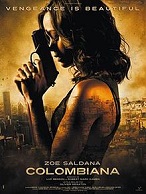
On July 27, 2011 Olivier Megaton's Colombiana (Sp. "woman from Colombia") (July 27) (EuropaCorp) (TF1 Films Production) (TriStar Pictures) (Stage 6 Films) debuts, starring Zoe Saldana as 25-y.-o. Colombian super-assassin Cataleya (a genus of orchids) Restrepo, Michael Vartan as her artist lover Danny Delaney, and Cliff Curtis as her Chicago-based criminal uncle Emilio, who sends her on hit missions while she dreams of getting even with her father's Colombian murderers Don Luis (Beto Benites) and Marco (Jordi Molla); does $61M box office on a $40M budget.
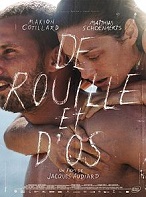
On May 17, 2012 Jacques Audiard's Rust and Bone (De rouille et d'os) (Canal+) debuts, based on the short stories by Craig Davidson, starring Marion Cotillard as Stephanie, a killer whale trainer who falls for unemployed 20-something wannabe-kick boxer Alain "Ali" van Versch (Matthias Schoenaerts) in Antibes and loses her legs in an accident; does $25.8M box office on a $20M budget.

On July 2, 2012 Martin Villeneuve's Mars et Avril (Mars and April) debuts, based on the graphic novels of Sid Lee and La Pasteque, starring Caroline Dhavernas as Avril, Jacques Languirand and Paul Ahramani as her lovers Jacob Obus and Arthur, and Robert Lepage as Arthur's father Eugene Spaak; watch trailer.

On May 21, 2016 Paul Verhoeven's Elle (France 2 Cinema) debuts, based on the 2012 Philippe Djian novel "Oh...", starring Isabelle Huppert as businesswoman Michele Leblance, who is raped in her home by an unknown rapist and plots revenge, discovering it's her next-door neighbor Patrick (Laurent Lafitte); does $10.2M box office on a $9.1M budget.